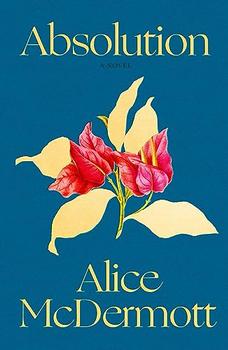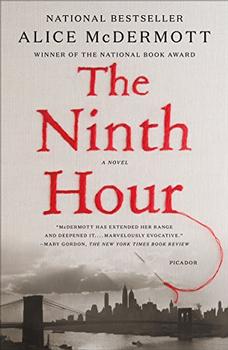Summary | Excerpt | Reviews | Beyond the book | Read-Alikes | Genres & Themes | Author Bio

 Book Reviewed by:
Book Reviewed by:
Jacob Lenz-Avila
Buy This Book
Absolution by Alice McDermott is an examination of moral relativity through characters who have the qualities of both victims and oppressors, saviors and interlopers: American military wives living in Saigon in the early '60s, when "the war, Vietnam itself, was nothing at all like it would become."
The protagonist Tricia is a somewhat naive, somewhat progressive 23-year-old kindergarten teacher married to an engineer, Peter. The newlyweds are Catholics, which makes them relative outsiders, though their faith is shared by both the American and Vietnamese presidents in this historic moment. Tricia wears her hair in a bouffant, consults the Betty Crocker cookbook before she goes shopping, and truly aspires to be "a helpmeet to [her] husband… a jewel in his crown"—a metaphor that highlights the parallel between patriarchy and colonialism.
She finds a purpose for herself in ...

BookBrowse's reviews and "beyond the book" articles are part of the many benefits of membership and, thus, are generally only available to subscribers, including individual members and patrons of libraries that subscribe.
Join Today
If you liked Absolution, try these:

by Kristin Hannah
Published 2024
From master storyteller Kristin Hannah, #1 New York Times bestselling author of The Nightingale and The Four Winds, comes the story of a turbulent, transformative era in America: the 1960s.

by Alice McDermott
Published 2018
Rendered with remarkable lucidity and intelligence, Alice McDermott's The Ninth Hour is a crowning achievement of one of the finest American writers at work today





The Flower Sisters
by Michelle Collins Anderson
From the new Fannie Flagg of the Ozarks, a richly-woven story of family, forgiveness, and reinvention.

The House on Biscayne Bay
by Chanel Cleeton
As death stalks a gothic mansion in Miami, the lives of two women intertwine as the past and present collide.

The Funeral Cryer by Wenyan Lu
Debut novelist Wenyan Lu brings us this witty yet profound story about one woman's midlife reawakening in contemporary rural China.
Your guide toexceptional books
BookBrowse seeks out and recommends the best in contemporary fiction and nonfiction—books that not only engage and entertain but also deepen our understanding of ourselves and the world around us.